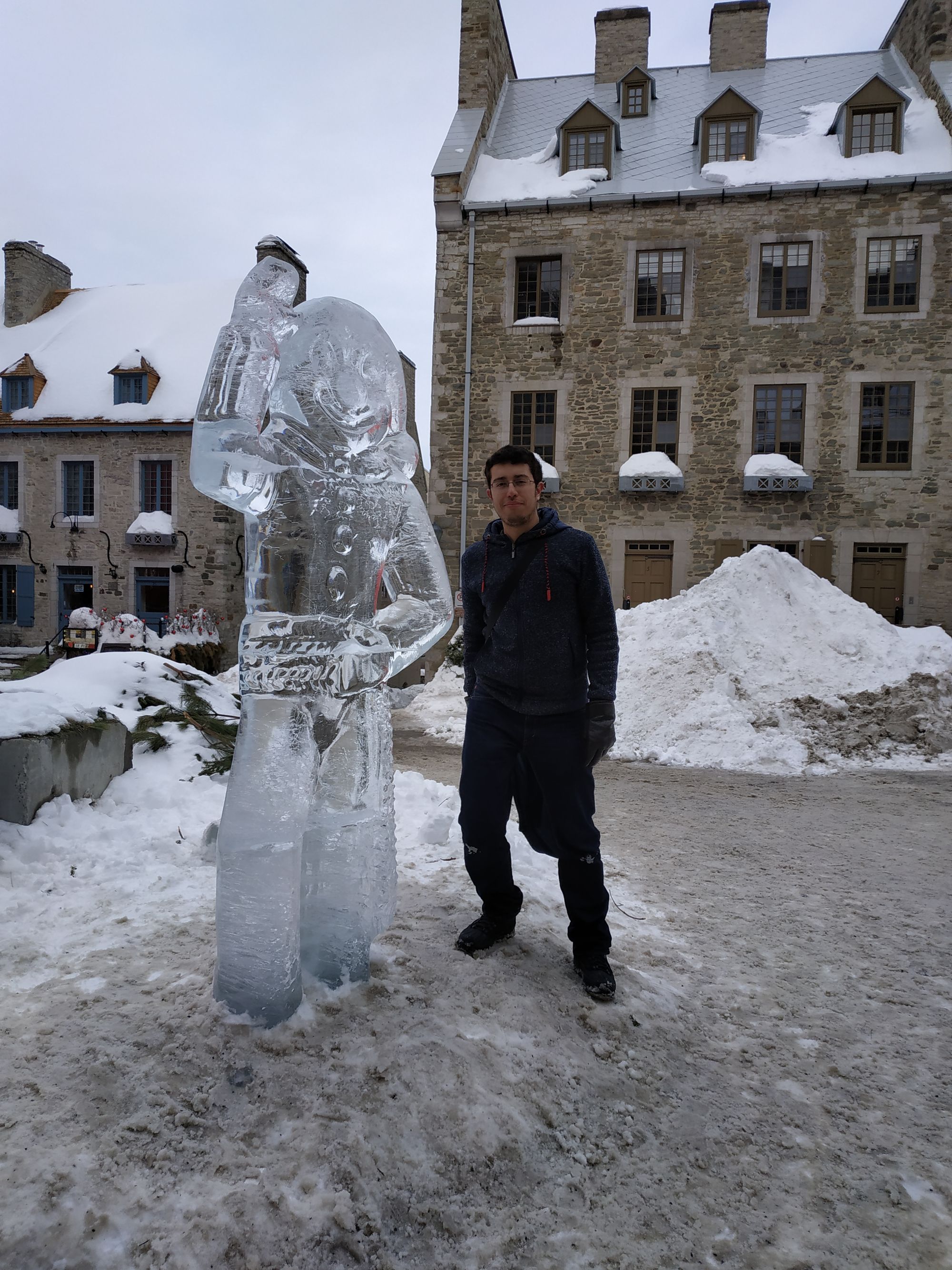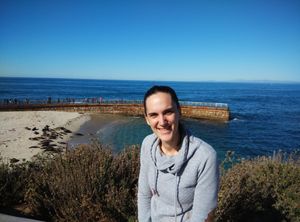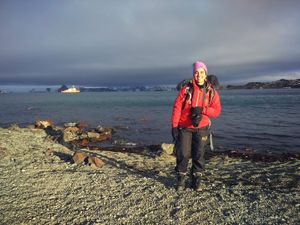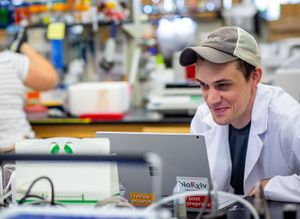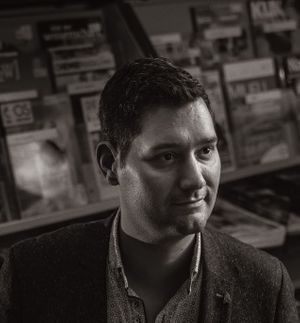We are incredibly excited to introduce you to the latest edition to our editorial team: Angel Cisneros. Angel has been working behind the ecrLife scenes since the spring of 2021, but is finally stepping into our spotlight!
Originally from Mexico City, Angel has traveled the world on his quest to understand science and people. A few years ago, he weathered the cold and moved to Québec City in Canada to obtain a PhD in biochemistry. He may even have grown to like the cold, because you can find him exploring national parks at all times of the year, even in the dead of winter! To warm his scientific heart, Angel tries to interact with and learn from as many scientists as possible and soon, he will spend a few months in Rehovot, close to Tel Aviv, to learn how to study duplicate genes. Angel is our youngest editor, but he is the classic example of an old soul in a young body; he already seems to master all aspects of the scicom trade! He was part of the Genetics Society of America’s early career leadership program, and chaired the communication and outreach committee for several years. He already wrote a handful of articles and blog posts about diverse topics, ranging from astrobiology over bioinformatics, genome duplication, and gender-neutral science. In short, Angel has more experience than most of us did when we joined ecrLife, is an ECR advocate in heart and soul, and we feel so incredibly lucky to have him as part of our team!
In a few sentences, could you introduce yourself, tell us where you are (both geographically and along your career path?) and what you study?
Angel Cisneros (AC): I am a computational biologist who studies protein evolution. I am especially interested in how events such as changes in expression level and gene duplication influence the effects of new mutations to the protein sequence. For example, a particular mutation that might be very harmful for a lowly expressed protein could be less so if the protein were more highly expressed. I am currently a PhD student at Laval University in Québec City, Canada.
I am currently at the end of the third year of my PhD program (wow, time flies!). This means that I am thinking about what I will do after my PhD. I feel like the possibilities are endless: from positions in academia or industry to science writing or editing. Life can take many twists and turns so maybe I will do a little bit of everything over the coming years!
What do you enjoy the most about being a scientist?
(AC): I would say the two main things I enjoy the most about science are the ability to pursue your own questions and the possibilities it offers to get to know different people. A very important fraction of what we learn in academia is thinking about how to set everything up to answer our questions. It is not always easy, but it is really fascinating to see how the plans slowly take shape for experiments in my wet lab peers and how integrating data slowly starts revealing a bigger picture in the dry lab!
As for the social part of science, I have been able to meet many different people and get involved in awesome projects. I have visited several countries for internships and conferences, which has helped me get a better appreciation for what we all have in common as people but also about the specific worries of each one of us. In a way, learning and sharing with others can teach us a lot about ourselves, so part of the journey is getting to know ourselves too.
What do you see as your key challenge as a scientist?
(AC): I think a key challenge faced by many scientists is the search for work-life balance. We face the tricky combination of having a great passion for our scientific projects and a high amount of pressure to produce results to advance our careers. As a result, we can easily get carried away in our work, especially when we are looking for that pesky little error that derailed our experiments. However, it is also important to complement our work in science with other activities outside the lab. Doing so allows us to clear our minds and continue to make plans for what we want in life, which eventually feeds back into the quality of our scientific work because we come back more motivated! Still, this is hard to accomplish, and I am still trying to fully find that sweet spot between work and life that suits me best.
What is the main change that you would like to see in the scientific community?
(AC): I believe the scientific community would benefit from an increase in the available funding. The road from basic to applied science is fundamental to continue to find better solutions to today’s problems. However, graduate students are often forced to work especially long shifts while also being under great stress due to a difficult financial position. An increase in the available funding for science and education could help improve the quality of life of millions of graduate students worldwide, which would also be reflected in the quality of the science they produce.
I would also like to see further inclusion of developing countries in the scientific community, from increased funding to support from journals and the organization of conferences. Hopefully, the recent success of virtual meetings will continue to allow scientists from developing countries to communicate their science.
What motivates you to communicate science?
(AC): I would say it is continuing to experience and sharing the sense of wonder that comes with studying the world. This sense of wonder can come in many different ways: from a simple “wow” to the smile that comes after the process of realizing we just learned something new. As a former teaching assistant, I think it is really uplifting to see students smile when they have grasped a concept that was difficult for them. It is also interesting to consider new aspects of a topic when we have to answer their questions! In the end, we cannot know everything and the universe of things that we have yet to learn can be daunting, but we can rest assured that we will not stop marveling at all the new things life throws at us!
What is your favorite thing about ecrLife?
(AC): ecrLife is a melting pot of life experiences. We get to learn from each other about many things that we might not have observed otherwise. For example, we have had inspiring articles about volunteering and thought-provoking ones about mental health in academia. As a member of the ecrLife team, I have read about issues that we all face and questioned myself as to how I can help others in my community. I strongly believe that ecrLife’s efforts in amplifying the voices of early career researchers are a great step in creating a better community for all of us and for the future generations of scientists.
About the author: Angel Cisneros is a PhD Student in Biochemistry at Laval University, Québec City. He loves getting involved in initiatives promoting science communication and diversity. Connect with Angel on Twitter.
We welcome comments, questions and feedback. Please contact us at ecrlife [dot] editors [at] gmail [dot] com.
Would you like to share your own story, insight or opinion? Pitch us here.
Follow us on Twitter or LinkedIn to stay up to speed with our latest news and blog post releases.

